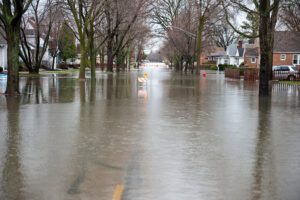What does touring caravan insurance cover?

Caravan holidays are increasingly popular in the UK. So much so that the caravan industry contributes more than £6 billion a year to the UK economy. Pandemic-led lockdowns undoubtedly contributed to this. Weeks, and months, couped up in the house with travel freedoms restricted meant that people began to appreciate life outside. There was a renewed affinity and appreciation for nature.
Other than perhaps camping, caravaning is the best way to experience this, as it allows you to travel to remote destinations. So much so that there are over one million leisure caravans in the UK. An estimated 555,000 of these are touring caravans. Also according to ONS data, there was a 76% decrease in overseas travel in comparison to pre-pandemic levels. This alludes to the fact more people are choosing to holiday in the UK.
Also, with some caravans costing as much as a small flat, it is well worth getting caravan insurance. It is especially important for caravans that are regularly touring in the UK. This is because they will be more at risk from road accidents and other damages.
This article will explain what touring caravan insurance is, and what this insurance covers.
What is touring caravan insurance?
Touring caravan insurance is a type of insurance that covers your caravan financially. It will provide cover against any unexpected incidents that affect your caravan, such as loss or damage. In some, but not all cases, your caravan may be covered by your regular car insurance. However, it is only third-party cover and only when towed by your car.
So, if you want to protect your caravan as an investment, or as a tool to escape into unknown adventures, touring caravan insurance cover is a must. There are varying levels of touring caravan insurance you can choose from, including optional extras.
Unlike car insurance, it is not a legal requirement. However, if you value your caravan it is well worth getting.
Will touring caravan insurance cover theft?
Anywhere between 1,000 and 4,000 caravans are stolen every year. Very few of these caravans are actually insured, meaning a large asset and a wealth of past and future memories could be stolen. Nearly all touring caravan insurance parties will cover against theft. However, there are different types of cover for this.
For example, caravan insurance can be new for old cover, or current market value cover. If your caravan is stolen and irretrievable, your financial compensation will be based on one of these. New for old cover means that if your caravan needs to be replaced, you will be offered a brand new replacement, or given the money for a similar caravan that is brand new. Current market value cover will only pay out the current value of your caravan. So, if this happens to be an old caravan, it may not be worth much.
As standard, you must secure your caravan using a wheel clamp and tow hitch lock to receive touring caravan insurance.
What else is covered by touring caravan insurance?
Caravan insurance typically protects against a number of different scenarios. For example accidental damage. This gives financial compensation protection if your caravan is damaged when travelling or when it is detached.
Touring caravans are also covered against malicious activity. This means any harm or damage that is done on purpose by vandals. Caravans are big targets for vandals, especially arsonists.
Third-party liability is another standard level of protection for touring caravan owners. This provides financial protection if a member of the public, or their property is damaged.
What are the optional extras of touring caravan insurance?
Considering your personal finances and needs, you may also like to include some optional extras. For example, you may like to spread the joy of caravan holidays by allowing friends or family to borrow your touring caravan. For this, you will need cover for use by friends and family. As you would expect this allows friends and family to borrow it without having to take out their own insurance.
Contents cover is another important extra to include in your caravan insurance. This is especially applicable on long-stay holidays or long periods of travel. On these occasions, you are likely to bring expensive items and store them in your caravan. Contents cover will cover the items stored in your caravan if they are stolen or damaged. However, this increases the cost of your caravan insurance considerably. Especially if the contents of you caravan you have chosen to list are valuable.
You can also add European cover if you are taking your caravan abroad. As expected this gives the same level of protection when taking your touring caravan abroad. Breakdown cover is another handy option in case your car breaks down. You do not want to be stuck in a rural, remote location, without the security of having someone come to fix or collect your vehicle, and caravan. Although some do cover caravans, it is unlikely that a car insurance policy will cover breakdowns for both a car. and a caravan. If you are stuck, some caravan insurance policies provide accommodation such as hotel stays until everything is fixed.
There is also optional financial protection for legal cover. This provides cover for legal expenses for a customer that seeks legal action for an accident that is not their fault. This includes losses from personal injury or travel expenses.
A person may also be able to add key protection cover to replace it if it becomes lost or damaged. The last thing you need is to be locked out of your caravan when on holiday. This may be particularly beneficial for those that have a habit of losing things.
How can I reduce my touring caravan insurance price?
You can state several steps to reduce the price of your touring caravan insurance. The most basic way is to store your caravan in a safe location when you travel. When you regularly use old-rated sites – as rated by the Caravan Storage Site Owners’ Association you may receive a discount.
If this is not an option try to park the caravan in areas with a low crime rate. Similarly, keep your caravan locked up in a garage at home to save money. You can also pay the annual insurance fee upfront instead of making monthly repayments. This is almost always less expensive as interest is not applied.
You can also remove any unneeded extras to reduce the cost of your insurance policy. For example, if you have no plans to travel abroad or lets friends or family use your caravan you could remove this from your policy. Furthermore, you may be lucky enough that your car breakdown cover also covers your caravan. In this case, you do not need it as an extra.
Some caravan insurance companies will offer customers discounts if they are members of certain caravan clubs.
How can security features reduce my caravan insurance cost?
Adding security features will help bring your insurance premiums down. This is because there is less risk involved from the side of the insurance provider. As stated a hitch lock and wheel clamp are basic security features that an insurance provider may demand. With certain providers, you may also be given a discount if you join a caravan club.
Gold standard enhanced locks also help prevent burglars from breaking into your caravan. These can also be enhanced by adding lock-linked alarms.
Electronic trackers can help in the recovery of a stolen caravan. Basic trackers show the location of the stolen caravan, whilst more advanced systems will alert a security provider when your caravan has been stolen. The more chance your caravan has of being recovered spells less risk to caravan insurance providers. This lack of risk is passed to you as savings.
Can safety improvements reduce the cost of my caravan insurance cover?
Added safety features are a welcome sign to insurance companies. They decrease the risk of accidents and thus caravans with more safety features are more stable to insure. This should help reduce the price of your insurance cover.
Safety features can include anti-traction control devices, tyre safety bands, tyre pressure monitoring systems, and rearview cameras and sensors.
You can also take a caravan safety course to make you a better driver when towing a caravan. Taking a B+E towing course can reduce premiums with some providers. Some insurers even offer an introductory no-claims discount with the completion of this course.
Touring caravan insurance: Summary
Caravan holidays in the UK are more popular than ever, contributing billions to the UK economy. There are now over half a million touring caravans across the UK. With more caravans touring across the UK there is added risk for owners and the general public alike. This is why extra cover has become more necessary.
Unlike vehicle insurance, you do not need caravan insurance as a legal requirement. This is because vehicle insurance usually provides basic third-party cover for your caravan. However, this is not enough to fully protect your caravan which if not a cherished possession is at least a large asset.
Basic touring insurance will protect your caravan from theft. Depending on your insurance policy you may be given a brand new caravan or funds matching the cost of a compatible brand new caravan if it is stolen. Conversely, you may be offered a replacement caravan or funds that reflect the caravan’s current value. This is known as new for old cover, or current market value cover.
As standard touring caravan insurance protects against:
Accidental damageMalicious damageThird-party liability
There are also a number of optional extras that can be built onto an insurance policy. This includes:
Cover for use by friends and familyContents cover (Things you bring in your caravan, eg camping equipment)European coverBreakdown coverAccommodation coverLegal costs coverLost or damaged key cover
There are also a number of ways to save money when taking out insurance for your caravan. A number of safety and security features can be added. Such as:
Hitch lock and wheel clampEnhanced alarm linked locksElectronic trackersAnti-traction control devicesTyre safety bandsTyre pressure monitoring systemsRearview cameras and sensorsCaravan safety courses
Furthermore, a person can use other tips to reduce the cost of their insurance premiums. They can park in low-crime area sites, or in a garage at home. You can pay the insurance upfront rather than in monthly installments. You can check the policy to see if there are any options that you can remove to save costs. For example, breakdown cover may not be needed if your car insurance also covers caravans.




